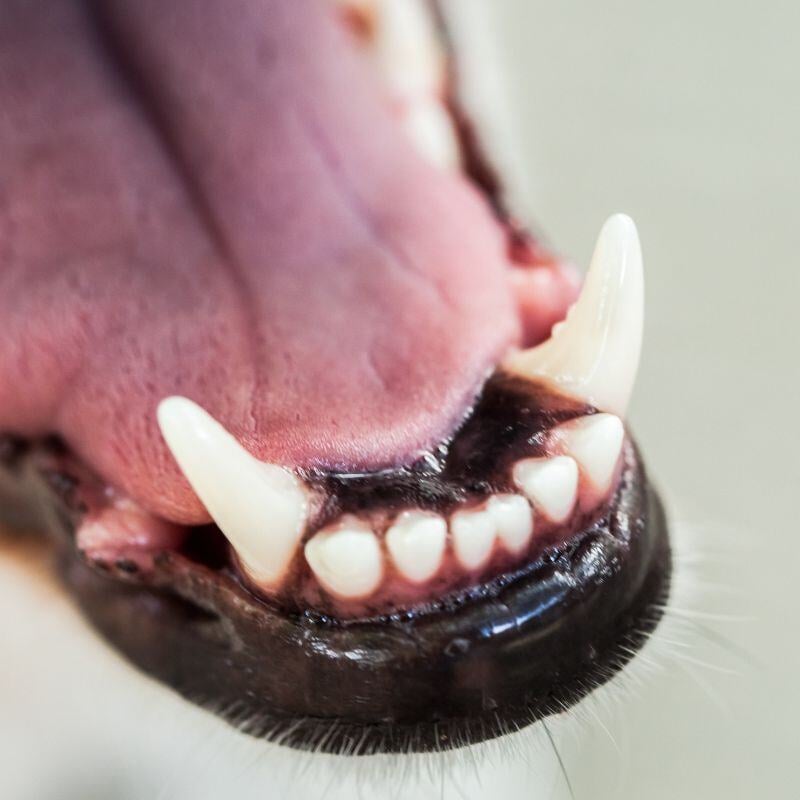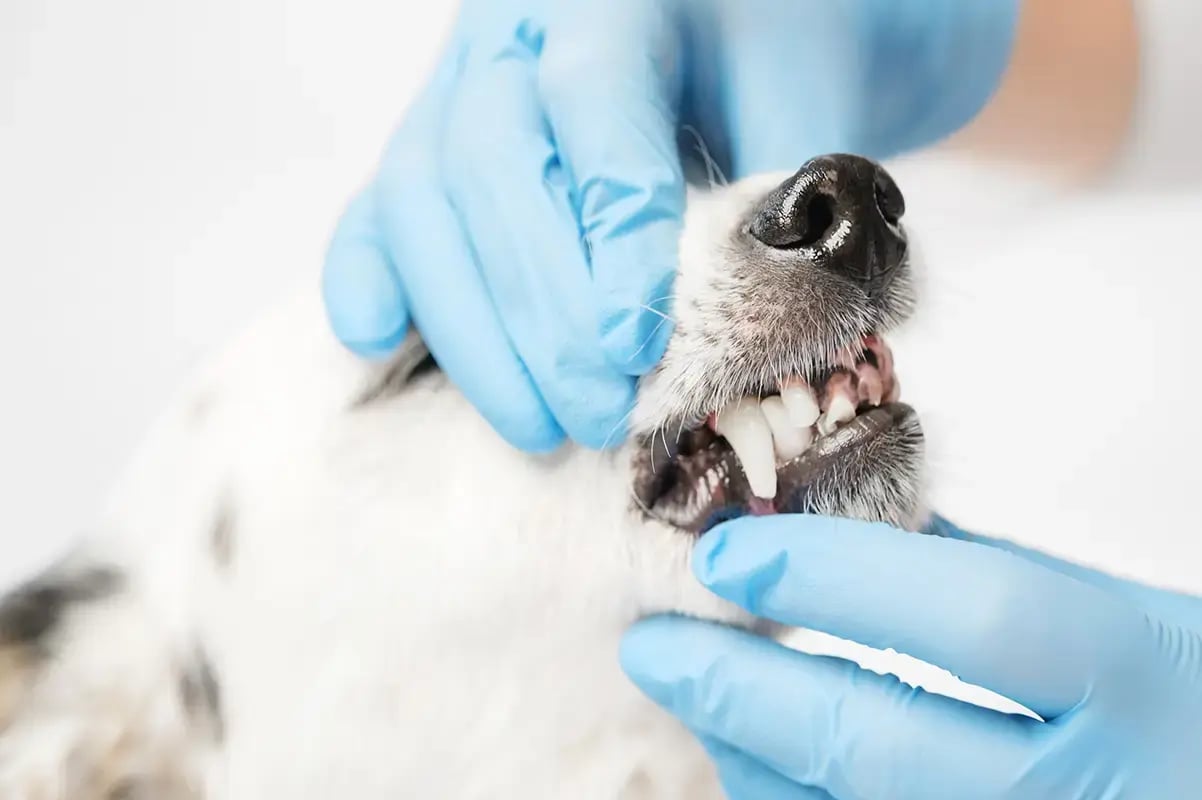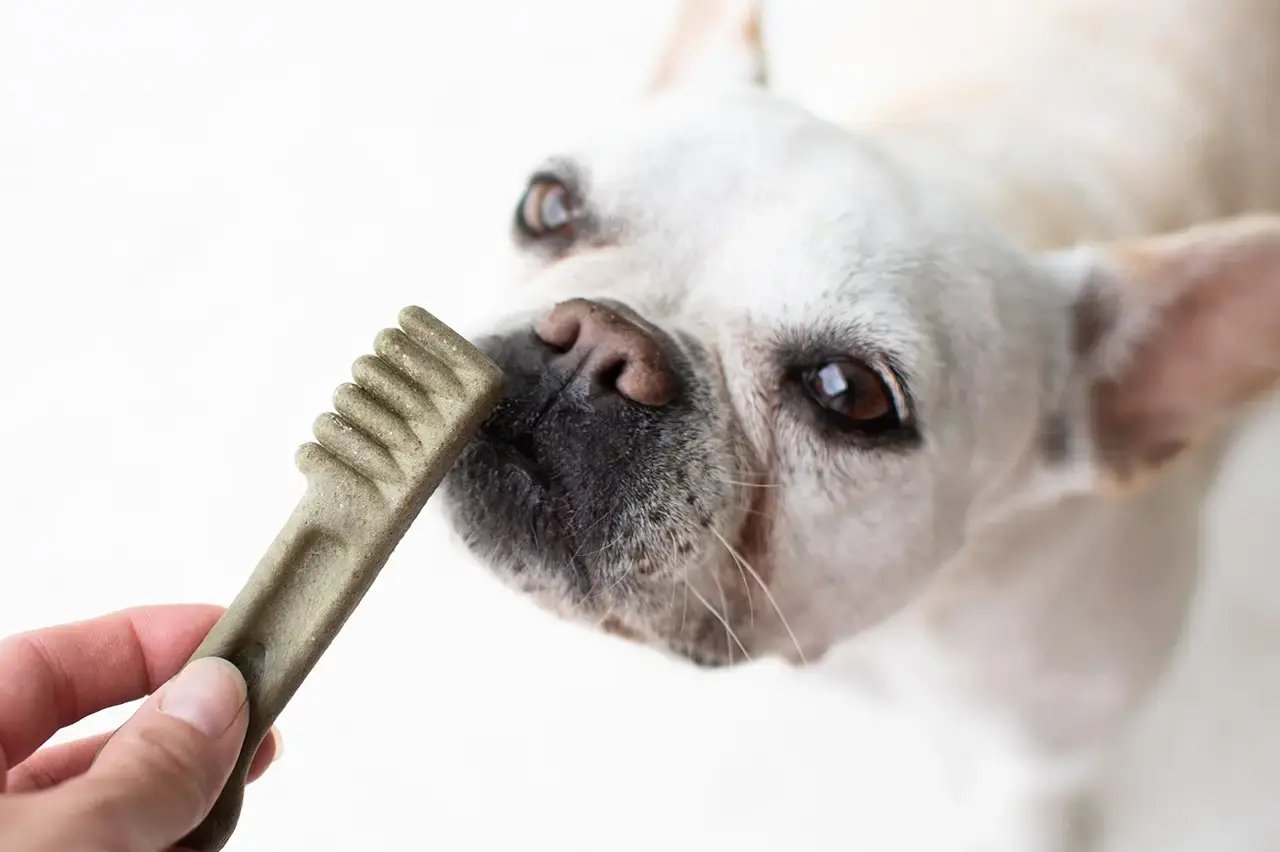Find us at our location in Chapel Hill:
1217 E. Franklin St. #2,
Chapel Hill, NC 27514

Dog Dental Care in Chapel Hill
Is Pet Dental Care Necessary?

Recognizing the Signs Your Dog May Require Dental Care
Dogs can often mask signs of illness like dental disease, so it is important to get their teeth checked regularly by a professional. If you notice any of the following signs in your dog, you may want to consult with one of our Chapel Hill veterinarians for a proper dental examination:
- Bad breath
- Tartar buildup
- Red, swollen, or bleeding gums
- Loose or discolored teeth
- Difficulty eating or dropping food
- Pawing at the mouth
- Pain when touched near the mouth
- Sneezing or nasal discharge (severe cases)
- Increased irritability or reduced grooming

How Dental Disease Can Affect Your Pet
Dental disease affects more than just your dog's mouth. Plaque and tartar buildup can lead to gum inflammation, infections, and tooth loss. If untreated, bacteria can enter the bloodstream, potentially harming vital organs and worsening other health conditions. Chronic dental issues also cause pain, impacting your dog’s ability to eat, play, and enjoy life.

At-Home Dental Care Advice for Your Dog
Maintaining your dog’s dental health in between appointments is a great way to keep your pet’s teeth looking their best. Remember, these at-home care tips don't replace professional dental cleanings. Regular veterinary check-ups are still essential for maintaining your dog's oral health.
- Brush your dog's teeth regularly (ideally daily)
- Use dog-specific toothpaste and toothbrushes
- Provide dental treats designed to clean teeth
- Use dental wipes or pads for quick cleanings
- Add dental additives to your dog's water
- Feed dental-friendly dry food or kibble
- Offer dental treats formulated to reduce tartar buildup
- Use rope toys for natural flossing action
- Provide dental rinses after meals

What to Expect During a Dental Exam
During your dog's dental exam at our clinic, we start with a visual check of their teeth, gums, and mouth for signs of disease like tartar buildup, inflammation, or abnormalities. If needed, we may recommend a deeper evaluation under general anesthesia. This allows us to take X-rays, check for periodontal disease, and perform a thorough cleaning, including tartar removal and polishing. Since much of a dog’s tooth structure is hidden beneath the gums, X-rays help detect issues not visible to the eye. After the exam, your vet will discuss findings and recommend any necessary treatments or home care.
